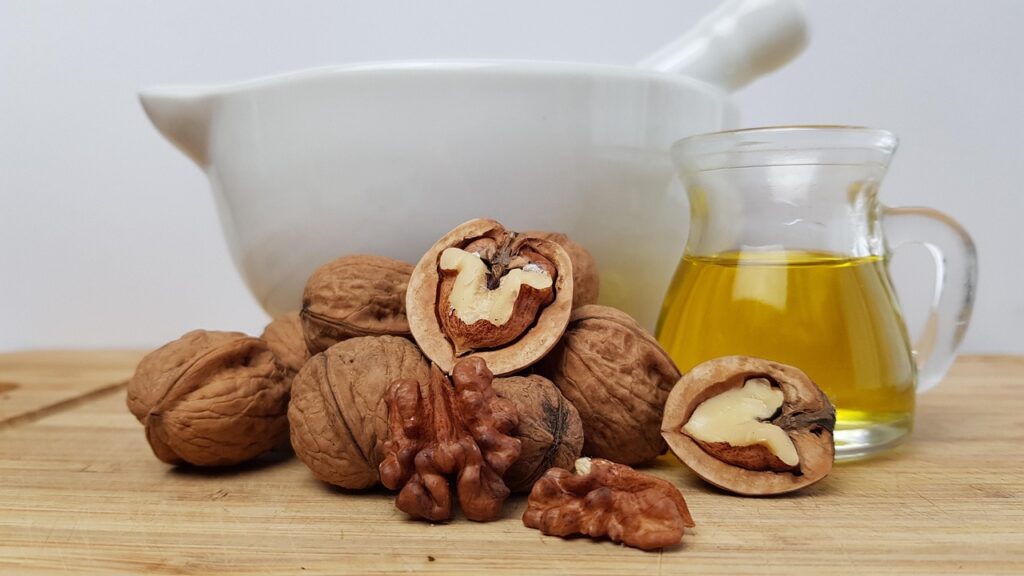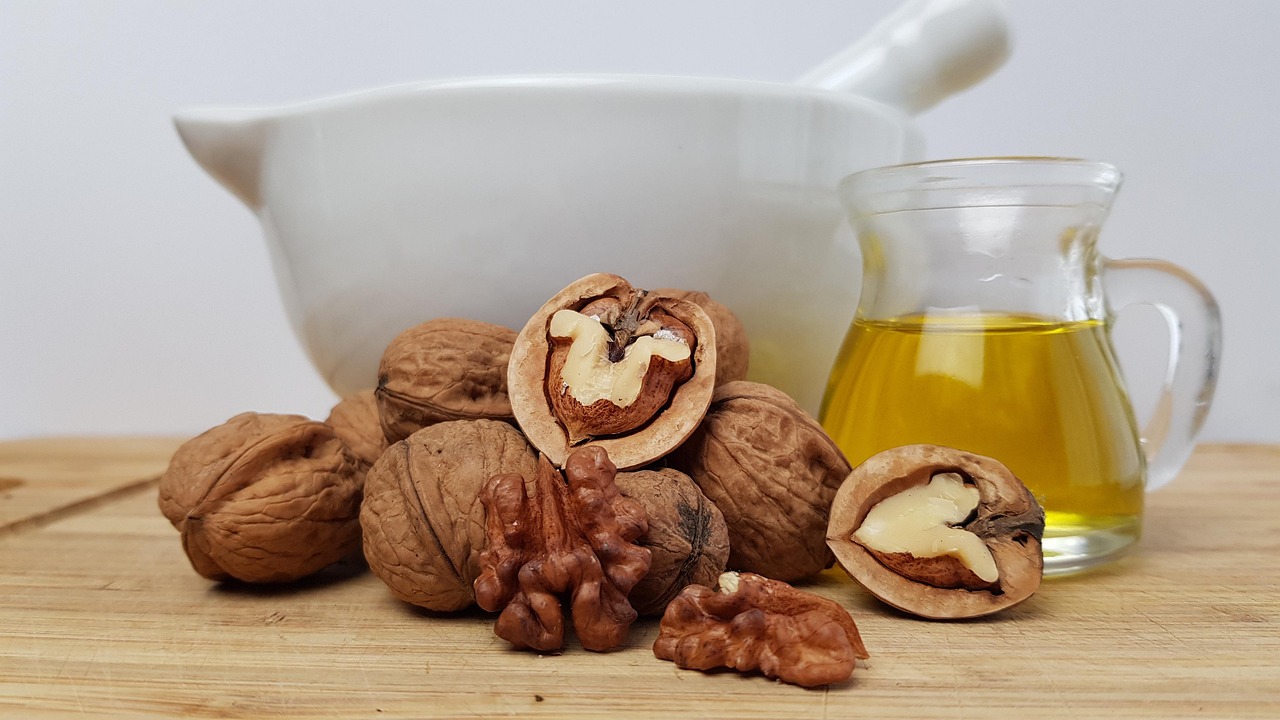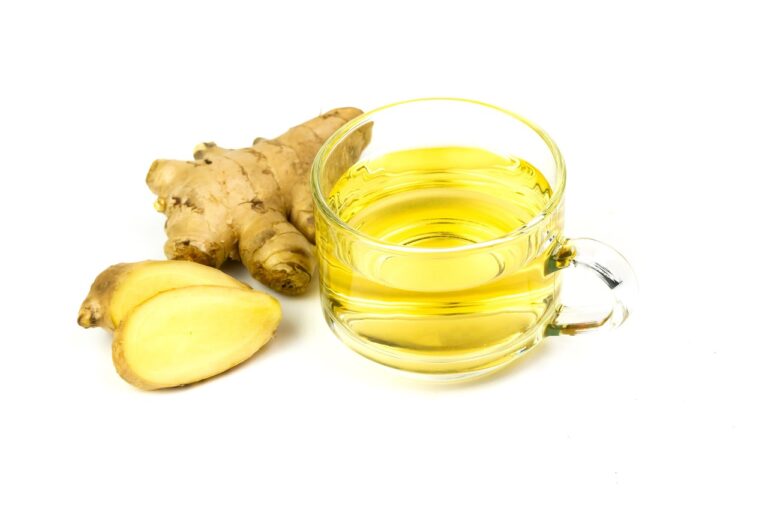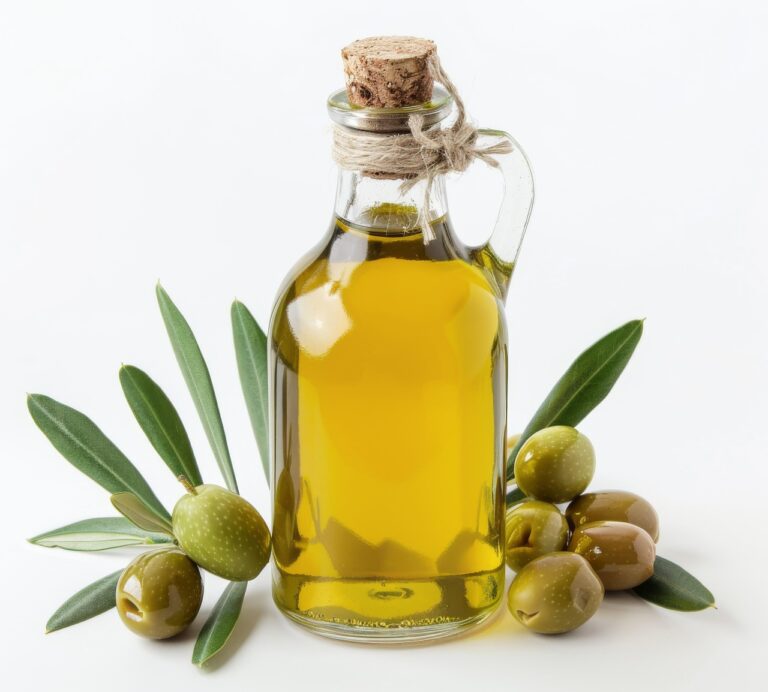Walnut Oil: The Brain-Boosting Superfood for Heart Health & Gourmet Cooking

Introduction – Why Your Pantry Needs Walnut Oil
Picture this: You’re drizzling a rich, aromatic oil over a fresh summer salad. As the nutty fragrance hits your senses, you realize this isn’t just any oil—it’s a secret weapon for your brain, heart, and skin. Welcome to the world of walnut oil, where gourmet flavor meets extraordinary health benefits.
For centuries, Mediterranean and French chefs have prized walnut oil for its delicate taste, while traditional healers valued it for its medicinal properties. Today, science confirms what these cultures knew instinctively—that this golden elixir deserves superstar status in both your kitchen and your wellness routine.
Whether you’re looking to sharpen your mind, protect your heart, or simply elevate your cooking, walnut oil delivers. Let’s explore why this underrated oil should become your new staple—and how to use it for maximum benefit.
What Exactly Is Walnut Oil?
Pressed from the nuts of the English walnut tree (Juglans regia), walnut oil comes in two main varieties:
- Cold-pressed (unrefined): Retains maximum nutrients and flavor, with a low smoke point (320°F/160°C)
- Refined: More stable for cooking but loses some antioxidants during processing
Nutritional Powerhouse Profile
Just one tablespoon contains:
✓ 1.4g omega-3 fatty acids (ALA) – crucial for brain and heart health
✓ Antioxidants like vitamin E and polyphenols – combat cellular damage
✓ Phytosterols – help block cholesterol absorption
Pro Tip: Always choose organic, cold-pressed walnut oil stored in dark glass bottles to preserve its delicate compounds.
Top 4 Science-Backed Benefits of Walnut Oil
1. Supercharges Your Brain Function
Your brain is nearly 60% fat—and the right fats make all the difference. Walnut oil’s omega-3s (ALA):
→ Build brain cell membranes for faster signaling
→ May lower Alzheimer’s risk by reducing amyloid plaques (2014 UCLA study)
→ Enhance memory and focus in adults (try 1 tbsp daily in your morning smoothie)
Real-Life Hack: Blend walnut oil into your coffee or matcha for sustained mental clarity without crashes.
2. Protects Your Heart Like Nature’s Medicine
Cardiologists applaud walnut oil for:
✔ Lowering LDL cholesterol by up to 15% in clinical trials
✔ Improving artery flexibility—critical for blood pressure control
✔ Reducing plaque buildup thanks to ellagic acid
Case Study: A 2018 study in the Journal of Nutrition found participants who consumed walnut oil daily saw improved endothelial function within 4 weeks.
3. Gives You Glowing Skin & Stronger Hair
Move over, expensive serums—walnut oil offers:
- Deep hydration for eczema-prone skin
- Vitamin E to neutralize UV damage (use as a night treatment)
- Scalp nourishment that reduces dandruff and breakage
DIY Beauty Recipe:
Overnight Skin Savior
→ Mix 1 tsp walnut oil + 1 tsp honey
→ Apply before bed; rinse in morning
4. Aids Digestion & Healthy Weight Management
Unlike processed oils, walnut oil:
✓ Stimulates bile production for better fat digestion
✓ Curbs sugar cravings by stabilizing blood sugar
✓ Reduces belly fat inflammation (per 2020 obesity research)
Chef’s Secret: Add to warm (not hot) oatmeal or quinoa for a metabolism-boosting breakfast.
How to Use Walnut Oil Like a Pro
Culinary Uses That Preserve Nutrients
Since heat destroys its benefits, use walnut oil for:
• Drizzling over roasted veggies (add after cooking)
• Whisking into vinaigrettes (3:1 ratio with vinegar)
• Enhancing desserts like dark chocolate mousse
Flavor Pairing Guide
✓ Fruits: Pears, apples
✓ Cheeses: Goat, gorgonzola
✓ Herbs: Thyme, tarragon
Walnut Oil Recipe Table
| Recipe | Ingredients | Instructions |
|---|---|---|
| Memory-Boost Breakfast | ½ cup Greek yogurt, 1 tbsp walnut oil, ¼ cup blueberries, 1 tsp chia seeds | Layer ingredients |
| Gourmet Pasta Finish | 8oz cooked pasta, 2 tbsp walnut oil, lemon zest, parmesan | Toss gently |
Walnut Oil vs. Other Popular Oils
| Oil Type | Best For | Omega-3 Content | Smoke Point |
|---|---|---|---|
| Walnut Oil | Dressings, low-heat | High (ALA) | 320°F |
| Extra Virgin Olive Oil | Cooking, dressings | Low | 375°F |
| Avocado Oil | High-heat cooking | Moderate | 520°F |
Key Takeaway: Walnut oil wins for raw applications where you want maximum omega-3s.
Who Should Be Cautious With Walnut Oil?
While generally safe, consider:
⚠ Tree nut allergy sufferers – avoid entirely
⚠ People on blood thinners – consult a doctor (vitamin K content)
⚠ Those with sensitive digestion – start with ½ tsp daily
Storage Tip: Refrigerate after opening and use within 3 months for peak freshness.
Final Verdict: Is Walnut Oil Worth It?
In a world of overpriced superfoods, walnut oil stands out as an accessible luxury—one that delivers tangible benefits for your mind, body, and taste buds. Whether you stir it into your morning yogurt or massage it into your skin, this versatile oil proves that sometimes, the best health solutions come in the simplest forms.
Your Next Step: Pick up a small bottle of cold-pressed walnut oil today. Try it in our Memory-Boost Breakfast recipe and notice the difference within weeks.
FAQs: Your Walnut Oil Questions Answered
1. Can I cook with walnut oil at high temperatures?
No—its delicate nutrients break down. Use for cold dishes or very low-heat cooking (under 300°F).
2. How does walnut oil compare to eating whole walnuts?
Whole walnuts provide fiber, but the oil concentrates omega-3s and antioxidants. Best to enjoy both!
3. Will walnut oil help my dry scalp?
Yes! Massage 1 tbsp into scalp before shampooing 2x/week to reduce flakes.
4. Is walnut oil good for keto diets?
Absolutely—its healthy fats support ketosis without carbs.
5. Can I use walnut oil past its expiration date?
Rancid oil loses benefits and tastes bitter. When in doubt, toss it out.
We Want to Hear From You!
Have you tried walnut oil? Share your favorite use—whether culinary or beauty-related—in the comments below. Your tip might inspire someone else to discover this golden gem!







